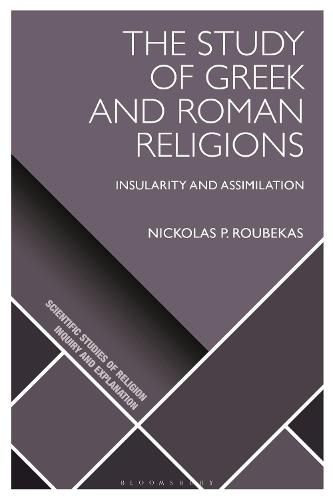Readings Newsletter
Become a Readings Member to make your shopping experience even easier.
Sign in or sign up for free!
You’re not far away from qualifying for FREE standard shipping within Australia
You’ve qualified for FREE standard shipping within Australia
The cart is loading…






How should ancient religious ideas be approached? Is religion an applicable term to antiquity? Should classicists, ancient historians, and religious studies scholars work more closely together?
Nickolas P. Roubekas argues that there is a disciplinary gap between the study of Greek and Roman religions and the study of religion as a category-a gap that has often resulted in contradictory conclusions regarding Greek and Roman religion. This book addresses this lack of interdisciplinarity by providing an overview, criticism, and assessment of this chasm. It provides a theoretical approach to this historical period, raising the issue of the relationship between theory of religion and history of religion, and explores how history influences theory and vice versa. It also presents an in-depth critique of some crucial problems that have been central to the discussions of scholars who work on Graeco-Roman antiquity, encouraging us to re-examine how we approach the study of ancient religions.
$9.00 standard shipping within Australia
FREE standard shipping within Australia for orders over $100.00
Express & International shipping calculated at checkout
How should ancient religious ideas be approached? Is religion an applicable term to antiquity? Should classicists, ancient historians, and religious studies scholars work more closely together?
Nickolas P. Roubekas argues that there is a disciplinary gap between the study of Greek and Roman religions and the study of religion as a category-a gap that has often resulted in contradictory conclusions regarding Greek and Roman religion. This book addresses this lack of interdisciplinarity by providing an overview, criticism, and assessment of this chasm. It provides a theoretical approach to this historical period, raising the issue of the relationship between theory of religion and history of religion, and explores how history influences theory and vice versa. It also presents an in-depth critique of some crucial problems that have been central to the discussions of scholars who work on Graeco-Roman antiquity, encouraging us to re-examine how we approach the study of ancient religions.